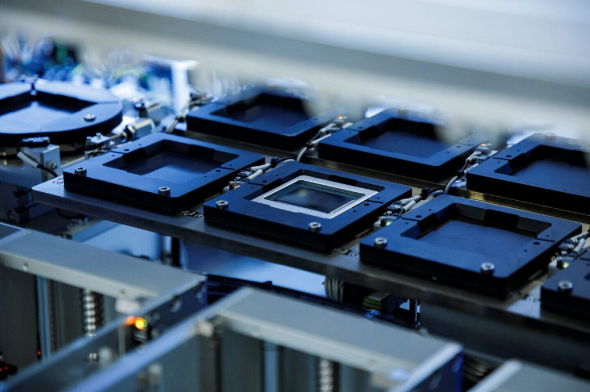Connection to DriversCloud Create a DriversCloud.com account Reset your DriversCloud.com password Account migration
Microsoft designs its own ARM chips, the Azure Maia 100 and Cobalt 100
The rumor has been swirling in recent months, but Microsoft has now confirmed it in the most official way possible.
Held on November 15 and 16 in Seattle, not far from the headquarters of the company founded by Bill Gates, the Ignite 2023 conference is an opportunity for Microsoft to announce a host of projects and dot all the "i "s a little. This year, it was the opportunity to confirm what had been rumored as early as last April, and which has been gaining momentum in recent weeks: yes, Microsoft has indeed designed its own chip, and in this case it's even talking about two components designed to reduce its operating costs and the performance of its artificial intelligences, but not only that.
Maia 100 is a so-called artificial intelligence gas pedal, and Microsoft's development of it is a nod to the leading designers of AI chips, with NVIDIA at the top of the list. Today, artificial intelligence is on everyone's lips, in every application, and it can quickly become very expensive to have to source it from another chip designer. Microsoft has therefore launched the Maia project, and the arrival of the first chip should enable it to better control the development of its own infrastructures, by getting a grip on the costs of the artificial intelligence core.
In a post on its official blog, Microsoft looks back at the development of the Maia 100 chip, and explains that it was developed in close collaboration with OpenAI, the company behind ChatGPT. The aim, of course, is to use it on Microsoft's most advanced solutions, GPT-4 and DALL-E 3. As the first chip designed specifically for Microsoft Copilot and Azure OpenAI services, the Maia 100 chip is also said to be " one of the largest chips ever built in 5nm technology ". It integrates over 100 billion transistors.
Microsoft also took the opportunity to announce the Cobalt 100, the first in the Cobalt series, which will also be followed by smaller chips. The idea here is to offer a CPU in the strict sense of the word, but one based on ARM architecture. The aim is to reduce costs for Microsoft data centers, on which many of the company's solutions (Teams, Azure SQL, Microsoft 365, etc.) run. Microsoft points out, however, that financial costs are not the only ones being taken into account, and Cobalt 100 should also help to lighten energy bills while reducing the carbon footprint of these increasingly decried data centers.






